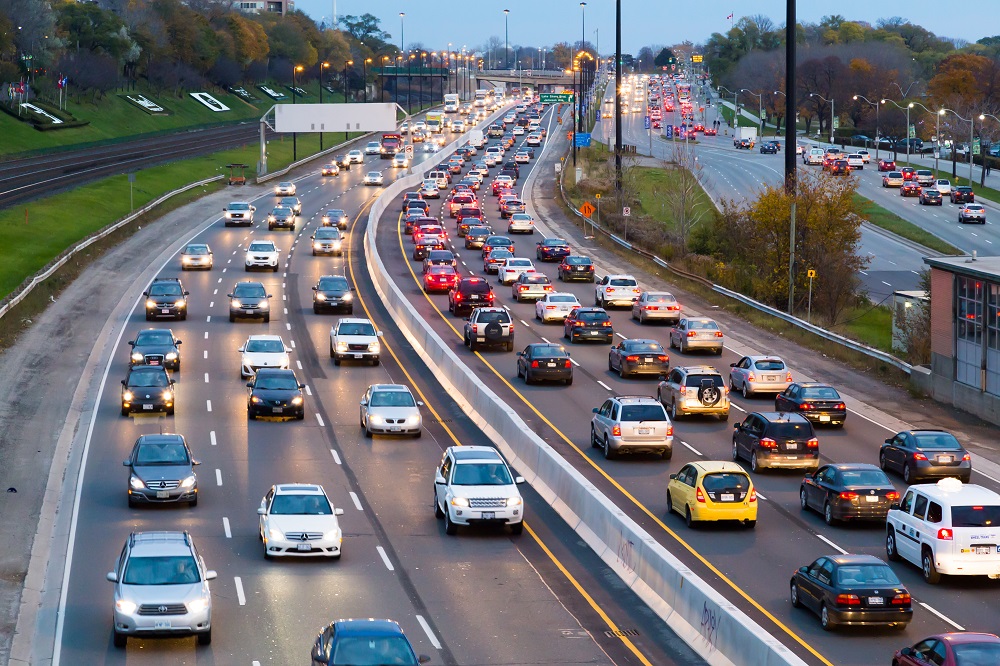Ontario Tech researcher threads the common ties between COVID-19 and protecting the environment
Seven questions and answers with sustainability expert Dr. Dan Hoornweg
April 13, 2020

At first glance, one might scoff at whether there’s any relationship between COVID-19 and climate change. Dr. Dan Hoornweg, a researcher in Ontario Tech University’s Faculty of Energy Systems and Nuclear Science, says we may not immediately associate the two topics, but there’s good reason to do so.
With the 50th anniversary of the first-ever Earth Day on the near horizon (Wednesday, April 22), the Professor and former Chief Safety and Risk Officer in Ontario explains in a series of questions and answers why we should be considering connections between COVID-19 and environmental issues, in terms of our responses:
Is there really a link between COVID-19 and topics like climate change or environmental responsibility?
“In terms of responding to a global threat, COVID-19 and climate change represent two ends of the political action spectrum. Within weeks of the advent of COVID-19, the world responded with war-like efforts to meet the threat. With social distancing, closing national borders and worries about economic impact, the world collectively took a financial hit over several trillion dollars. No one is discounting the gravity of the COVID-19 threat.
Climate change, on the other hand, highlights policy lethargy and the difficulty overcoming behavioural inertia. Despite the scientific consensus and relatively straightforward policy directives, little concrete action has been taken to address climate change in the last 50 years.
For now, COVID-19 is a sprint, while climate change is a marathon, but both are the same race.”
Why are there still so many voices seemingly pushing against clean energy solutions like electric vehicles and transportation electrification?
“Part of the problem is that some environmentalists have done a poor job of selling the benefits of clean energy. Environmental change is often so slow that it’s difficult to notice; the pace can be almost glacial. But look how the enforcement of environmental standards once helped put the brakes on acid rain, and how once-ravaged industrial landscapes in many communities have recovered with greenery. Look at how the elimination of coal-fired generating stations (2014) in Ontario helped to reduce smog days in the Greater Toronto Area. Or how reducing acid rain emissions around Sudbury is leading to a re-greening of the city.
I think in Ontario the biggest push for clean energy should come from the clean air that goes with it. We still have a long way to go. People are killed by accidents involving cars and trucks. But Ontario still pays dearly with lives lost due to air pollution, from the collective impact of emissions out of tailpipes. And interestingly, early research is showing that COVID-19 transmission is more acute in areas with higher air pollution.”
Some say if Canada’s environmental efforts are to have any positive impact, they must be complemented by similar efforts and resolve by the United States. Is this a fair claim?
“We are debating how quickly to change, not whether or not change is coming. Whether it’s COVID-19 or climate change, the truly difficult global challenges do not respect borders. All borders do is keep people in or out. Capital and ideas tend to cross borders unhindered. We should look at decarbonizing our economy as an opportunity, rather than as an arduous or unworthy task. By remaining in the ‘slow lane’ of change, Canada gives up considerable economic growth in other parts of the economy. America certainly remains a large market for us in future, but its relative size to the rest of the world is declining rapidly. Canada should look to partner with Africa and Asia along with Latin America and Europe, in addition to America.”
There were various environmental initiatives in place or in motion in the United States prior to 2016. Has some of that been shelved or rolled back in recent years?
“(President) Trump is a response. A phenomenon. We see similar ideas and ideals emerging through Brazilian President Jair Bolsanaro, Brexit in the United Kingdom, and nationalist sentiment in many countries. This is natural. We are all increasingly afraid as the world enters a much more turbulent time. Many people are angry and feel their way of life is threatened. People who voted for Trump should not be castigated; they love their children as much as the most ardent Democrat does.
Certainly there is much in the ‘green agenda’ that needs closer scrutiny. There are, however, core beliefs or first principles we should all agree on: a healthy environment so we don’t poison our children; safety; society’s ability to take a punch and quickly get back up; integrity of information; and science-based responses.
Of course, we will never get everyone to agree on everything. But we can build a consensus sufficiently broad to provide for both today and our children’s tomorrows.”
In pockets of Canada, there is a campaign to try and convince people that carbon pricing is a ‘carbon tax’, and that it’s going to decimate fossil fuels industries. Some hate wind turbines. Some say solar energy is too costly pointless. How do we counter this?
“We don’t. People are entitled to their opinions. The carbon tax is not yet working; if its goal was to change behaviour by increasing prices, with the recent massive drop in gas prices, we obviously have no effective tool to incentivize behaviour changes through price signals. Not yet anyway.
Carbon pricing is but one tool. It’s probably the best tool we have available, but certainly not a golden bullet. Similar with wind and solar: they are important, but they will not ‘solve’ our energy challenge. Society and economies are complicated and messy with far more shades of grey than black and white. This a marathon, not a sprint. Everyone advocating for their specific idea or technology must realize that we are all in this together. True, it sounds trite, but we are only as strong as our weakest link—at home and globally.
Going forward we will need a tool box with a range ways to change behaviour and develop better technologies. We will need to pay for using roads as we move to electric vehicles and government loses gasoline tax revenues. We will need to incur higher costs as we have some critical items manufactured here at home. A carbon tax also has the benefit of moving us away from taxing ‘goods’ like salaries, and taxing things we want to see reduced. The majority of Canada’s trading partners have some form of a price on carbon. We can’t easily go to Europe or Asia and say, ‘it’s ok for you to pay for carbon, but since we live close to the U.S. you’ll have to give us a pass.
Canadians don’t like hearing it, but we are the most energy-intensive, wasteful country in the world, and it’s not because we are a big, cold country. If a price on carbon helps move us to a more sustainable path, it seems a good idea. In discussing a carbon tax as Canadians, we need to discuss with Alberta and Saskatchewan how we are on this path. Their economies are being hit hard by the global shift away from fossil fuels. We really are all in this together.”
Some governments in North American jurisdictions are fighting hard against environmental measures and sentiments. Will the arguments for investments in clean and green energies be heard?
“The (political) ‘right’ is often right. Brian Mulroney likely did more for Canada’s environmental movement than any other prime minister. Right and left are only arguments on approach. There’s room for everyone in the tent. The toughest ‘nut to crack’ is acceptance that a major environmental issue in one part of the world eventually will impact us here in Ontario. If someone pees in the swimming pool, it impacts us all. The first Earth Day may have been held in the U.S. but it highlighted the dawning of the environmental movement in many countries. Democrats and Republicans came together to say, ‘It’s not OK that our rivers catch on fire’. They had a funeral for Lake Erie.
Earth Day 2020 should be the dawning of the ‘global’ environmental movement, which is simply stating the obvious: there’s no place in the pool where you can pee without affecting everyone using the pool. COVID-19, climate change, geomagnetic storms, economic collapse, and ozone depleting substances: building walls won’t keep these threats away.”
How does global society truly start taking environmentalism seriously? Fifty years after the first Earth Day, does global response to COVID-19 shed any light?
“Having previously worked for various levels of government and government agencies, there are genuine trade-offs when it comes to dealing with environmental issues and climate change. All governments, just like most of us, tend to procrastinate and discount future needs. We don’t always buy insurance or go to the gym when we should. But the economic price of the global COVID-19 response is easily 100 times more than it would have cost to better prepare for it in the first place. Every good risk advisor and government official knew that, but there are always more pressing political imperatives. Climate change is the same–we can pay now, or we can pay later. But we will pay. Like the old saying ‘An ounce of prevention is worth a pound of cure’, environmental action is the cheapest insurance you can buy. Governments everywhere should be demanding better coverage.“
1 > 1
Gallery
Media contact
Bryan Oliver
Communications and Marketing
Ontario Tech University
289.928.3653 (mobile)
bryan.oliver@ontariotechu.ca




